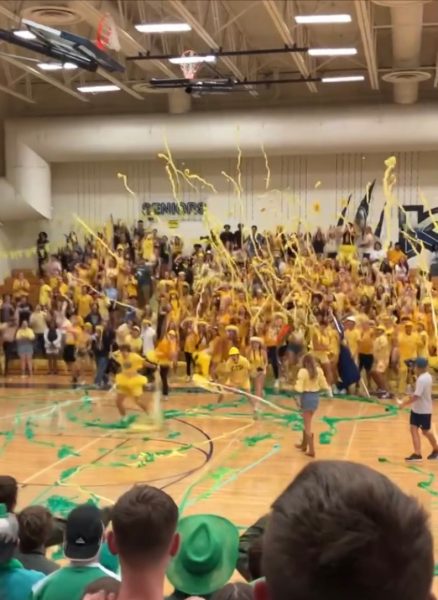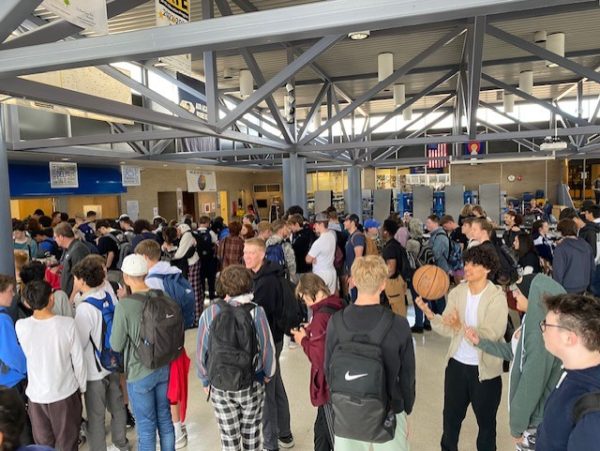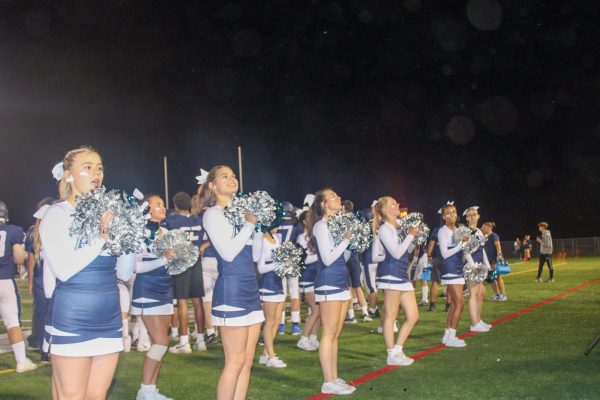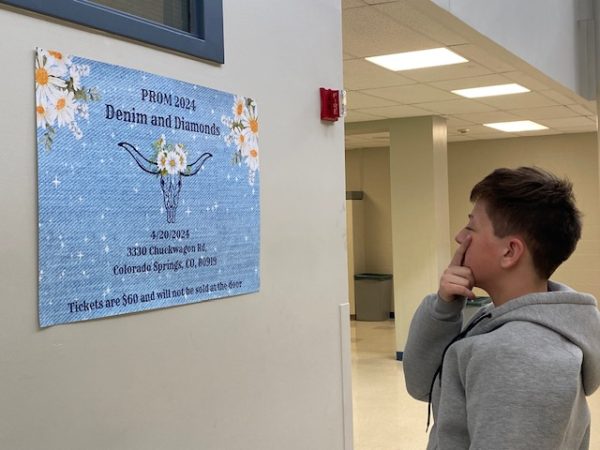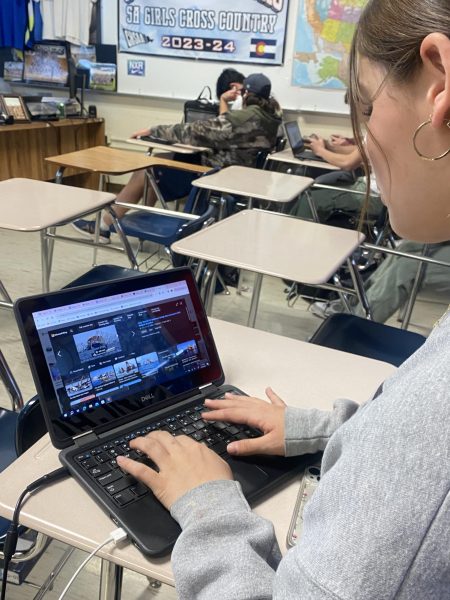Advice for the Youngins
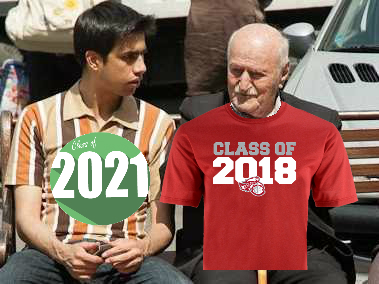
A senior gives advice to a youngin. Photo created by Jonathan Flat.
Dear Classes of 2019, 2020, and 2021,
As high school comes to a close for the Class of 2018, here are a few tidbits of advice that I’d like to give to you. Some may be cliché or repetitive, but I urge you to follow—or at least consider—them all the same.
1. Look to the Future
Now. Seriously, it is never too early to think about your future goals or life plans. Even if you are a freshman in high school, think about what it will take to get into your dream college four years later. Think about the steps it will take to get there. You don’t want to find yourself looking back as a senior, thinking, “Oh, I really should have participated in more extracurriculars; I should have done more community service.” Colleges look at all four years of your high school career, and showing that you followed your passions for all four years looks substantially better than trying to cram a multitude of activities in your senior year. Similarly, if you try to fit 8 AP classes into your junior or senior year, you will probably want to die. Don’t let a number like your GPA define you, but just remember that it is cumulative, and colleges do use it when considering your application. Just remember that high school is probably the biggest motivational burden you will ever face, at least academically. After this, you will be able to (mostly) choose classes you are interested in, especially ones that don’t start at 7:45 a.m. On that note…
2. Try Everything, Find Your Passions, Then Follow Them
High school is an extraordinary time for exploring anything that you think you may have even a slight interest in, so try everything. Put your name down on the email list for every single club at the club fair. Your inbox may explode, but you will have the opportunity to take part in every club and activity. Who knows, you might find out that you have a hidden passion for tea in Tea Club or enjoy watching things blow up in Chemistry Club. The same goes for any other activities, sports, or even classes. Try an engineering course. Try DECA. Sign up for a sport you have never played before. That’s what I did sophomore year with soccer, and it was some of the most fun I have ever had. I wish I had tried soccer earlier. Learn from me and try that one sport you’ve always wanted to try before it’s too late. One of my biggest regrets in high school is not playing hockey because I had trouble skating backwards. Find your passions early on so you don’t regret missed opportunity later, and stick with those passions. They might even help direct your future path in life.
3. The ACT Is Easier Than the SAT (Potentially)
Well, this is entirely subjective, but I figured that I might as well elaborate a bit on the two since they are big, scary, important acronyms in your academic career. From my experience, here is a general overview. Questions on the ACT are a bit less difficult, but you are given less time to complete them; questions on the SAT are a bit more difficult, but you are given more time to complete them. Are you better at thinking quickly or thinking thoroughly? You might want to ask this question when considering which test to take. Even still, you won’t truly get a feel for either exam until you take it at least once. Just remember, some colleges want to see your entire history of standardized tests, so a total trial run might not always be the best idea (it also costs money.)
4. Work on Scholarships Early
College is expensive and is getting pricier every year. Scholarships obviously have the ability to alleviate this burden, but only if you find them and turn the applications in on time. I started working on scholarships second semester of my senior year only to find that a lot of the good scholarships were due months back. Caught up in the act of actually applying to college, I missed these opportunities to help pay for my education. There are plenty of good scholarship websites out there, and I urge you to start thinking about scholarships at the beginning of senior year or earlier. There are even some scholarships that can only be completed as a junior, so get started!
There is a common theme in these bits of advice: the importance of planning. It’s extremely important to have at least some vision of your future, even if you don’t know exactly how you want it to turn out. There is a reason that teachers make us write goals for ourselves; it is so we have—at minimum—some piece of our future that we can look forward to. Seeing even the smallest part of this end result helps us determine the steps needed to get there.

Shalom le'kulam, my name is Jonathan Flat and I am the Managing Editor for this outstanding school newspaper. As a 16-year-old in the 12th grade, I'll...



